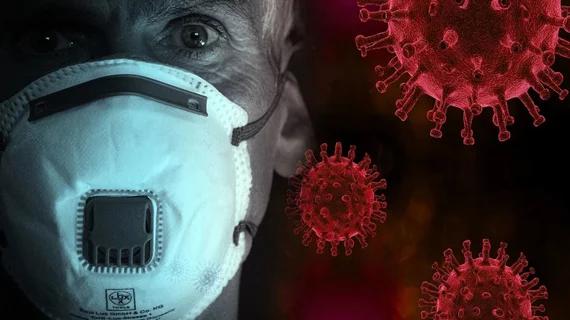Physician group advises on COVID-19 prevention and precautions
Masks on or masks off? The effectiveness of different types of face masks used to prevent infection of COVID-19 has been called into question over the last several months while the global pandemic continues. The American College of Physicians has released its new Practice Points, which aims to provide rapid clinical advice based on evidence.
The ACP is the largest medical specialty organization in the U.S. with 159,000 internal medicine physicians. The Practice Points noted that asymptomatic or symptomatic persons in community settings should follow public health guidelines for mask use and take other prevention precautions and control procedures even while wearing a mask.
The group specifically urged those who interact with lots of people, such as flight attendants, restaurant servers, grocery workers, cab drivers and others “would benefit from wearing a surgical or cloth mask.” However, direct evidence about the effectiveness of masks against COVID-19 is still needed.
“It’s important to note that lack of direct evidence does not mean that masks are effective or are not effective,” Jacqueline W. Fincher, MD, MACP, president of ACP, said in a statement. “We will continue to monitor this and update these Practice Points as new evidence becomes available. In the meantime, we support following proper precautions and procedures to reduce infection transmissions.”
The group found there is insufficient evidence to evaluate is various types of respirators or masks can prevent COVID-19 in healthcare settings. Similarly, there isn’t any direct evidence to show the effectiveness of masks or respirators against COIVD-19 in community settings. Therefore, ACP based its Practice Points on indirect evidence from other types of coronaviruses, influenza or similar infections, as well as other respiratory infections.
Though, there is “low-certainty evidence” that using masks may reduce the risk of coronavirus infection compared to no mask use, but mask type was not specified. So, ACP relied on low to moderate evidence for effectiveness of different types of masks and respirators––N95 respirators, surgical masks and cloth masks––with other diseases, including SARS-CoV-2, MERS and other respiratory viruses.
Beyond masks and respirators, it is still “essential” to follow other prevention precautions, like social distancing, quarantine, self-isolation, hand washing, avoiding touching the face, cleaning and disinfecting and covering cough and sneezes. ACP will update its Practice Points as more information becomes available.

